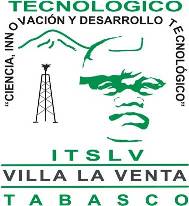Direct and Reported Speech (El estilo directo e indirecto)
Cuando queremos comunicar o informar de lo que otra persona ha dicho, hay dos maneras de hacerlo: utilizando
el estilo directo o
el estilo indirecto.
Direct Speech (El estilo directo)
Cuando queremos informar exactamente lo que otra persona ha dicho, utilizamos
el estilo directo. Con este estilo lo que la persona ha dicho se coloca entre comillas y deberá ser palabra por palabra.
Ejemplos:
- "I am going to London next week," she said. ("Voy a Londres la semana que viene," ella dijo.)
- "Do you have a pen I could borrow," he asked. ("Tienes un bolígrafo que puedas prestarme," él preguntó.)
- Alice said, "I love to dance." (Alice dijo, "Me encanta bailar.")
- Chris asked, "Would you like to have dinner with me tomorrow night?" (Chris preguntó, "Te gustaría cenar conmigo mañana por la noche?")
Reported Speech (El estilo indirecto)
El estilo indirecto, a diferencia del estilo directo, no utiliza las comillas y no necesita ser palabra por palabra. En general, cuando se usa el estilo directo, el tiempo verbal cambia. A continuación tienes un explicación de los cambios que sufren los tiempos verbales.
A veces se usa "that" en las frases afirmativas y negativas para introducir lo que ha dicho la otra persona. Por otro lado, en las frases interrogativas se puede usar "if" o "whether".
Direct Speech | →
| Reported Speech |
| Present | → | Past |
| "I work in Argentina" | | He said that he worked in Argentina |
| "I am doing my job" | | He said that he was doing his job |
| Past | → | Past Perfect |
| "We saw a good film on TV" | | He said they had seen a good film on TV. |
| "I was dancing with Mary" | | He said he had been dancing with Mary |
| Present Perfect | → | Past Perfect |
| "I have done this before" | | She said that she had done that before |
| "I have been doing this for two years" | | He said that he had been doing that for two years |
| Future | → | Conditional |
| "I will visit my mother" | | He said that he would visit his mother |
| "I will be flying to Spain" | | He said that he would be flying to Spain |
| Future Perfect | → | Conditional Perfect |
| "I will have arrived there by 5 pm" | | He said he would have arrived here by 5 pm |
| "I will have been selling books for two years" | | He said that he would have been selling books for two years |
En la siguiente liga encontrarás más ejemplos explicando y usando el Reported Speech:
http://www.shertonenglish.com/resources/es/reported-speech/tenses.php
